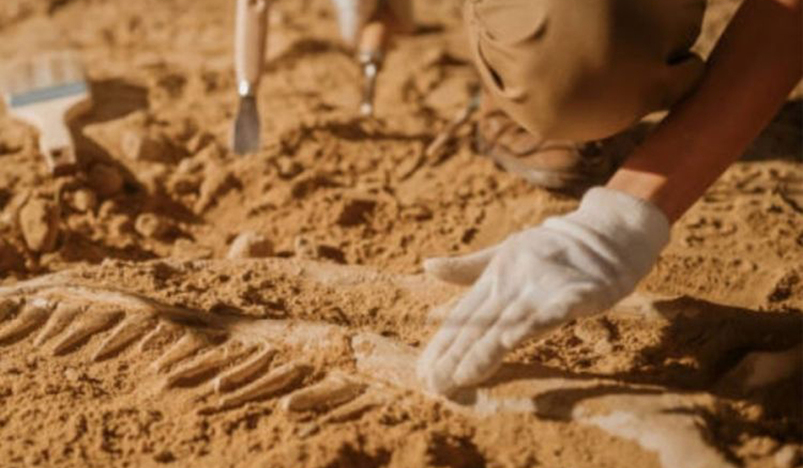
Fossils
Fossils of marine creatures dating back 56 million years have been unearthed in Saudi Arabia, a significant find that sheds light on ancient ecosystems in the region.
Tariq Aba Al Khail, spokesman for the Saudi Geological Survey (SGS), announced the discovery, which includes vertebrate remains embedded in limestone rock formations in the Ras Al Ru'us sedimentary area in the Northern Borders region.
The fossils, primarily imprints and internal molds of bony fish, include extinct catfish species or silurians, which offer rare insights into marine communities of the early Eocene epoch.
The Eocene epoch is a geological period that lasted from approximately 56 million to 33.9 million years ago, forming part of the Paleogene period. It is the second epoch of the Cenozoic Era, following the Paleocene and preceding the Oligocene.
Scientists say these remains provide a window into the Tethyan Sea, a prehistoric body of water that once stretched across vast areas of the Middle East and Asia.
“This is the first discovery of vertebrate fossils from this geological period in Saudi Arabia,” Aba Al Khail said, emphasizing the importance of the find in understanding the ancient environment and the paleogeographic context of the region.
The Ras Al Ru'us formation has long been recognised for its rich sedimentary layers, but this discovery highlights its value as a key site for uncovering evidence of early marine ecosystems.
SGS researchers are conducting further studies to analyze the fossils, which they believe could reveal more about the biodiversity and climatic conditions of the time.
.jpg)
Qatar Secures Place Among the World's Top 10 Wealthiest Nations
.jpg)
Hamad International Airport Witnesses Record Increase in Passenger Traffic

Saudi Arabia: Any visa holder can now perform Umrah

What are Qatar's Labour Laws on Annual Leave?
Leave a comment